Pioneer Stories
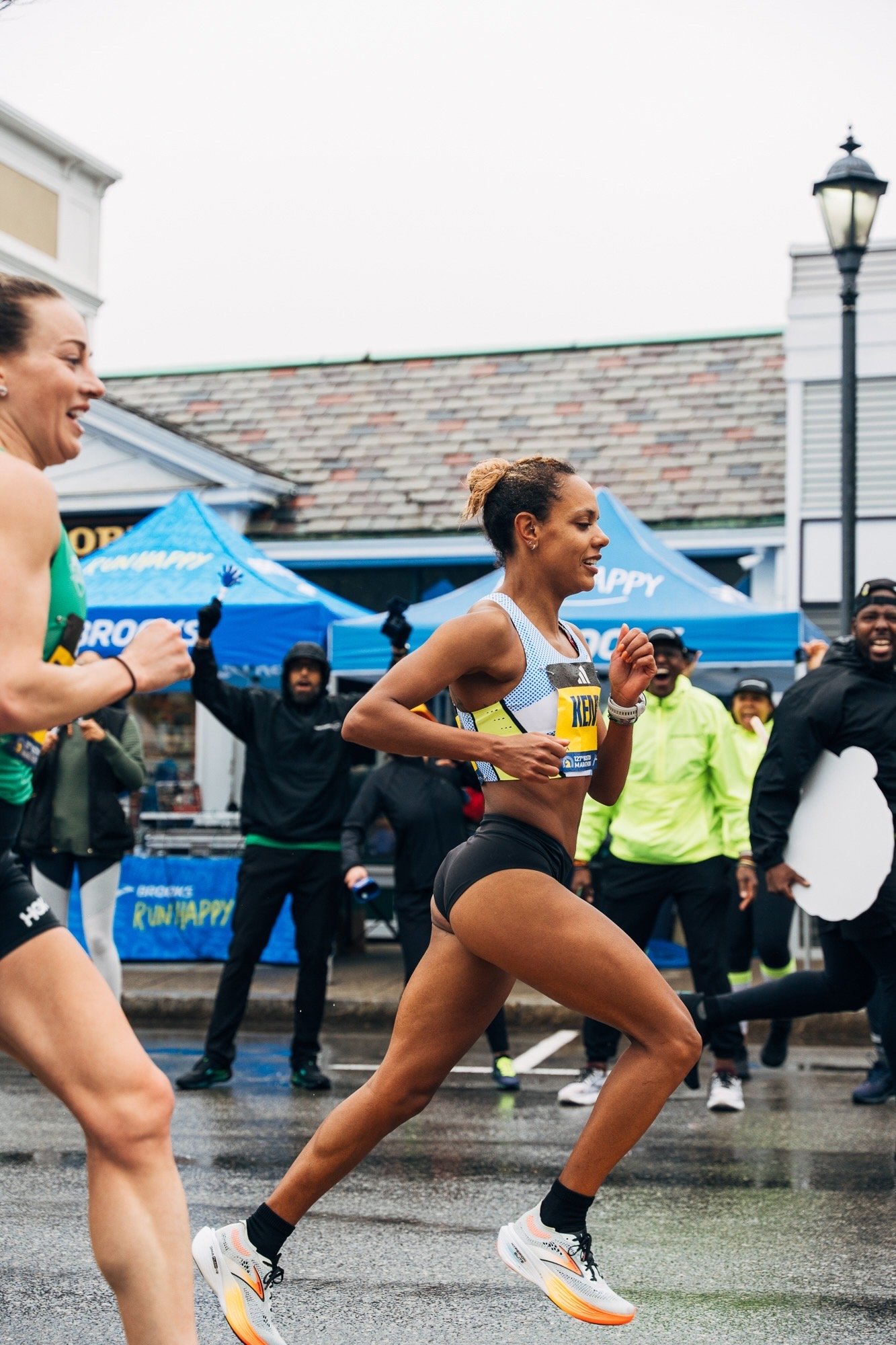
Erika Kemp
Erika Kemp didn't start running until her freshman year of high school, and went on to attend North Carolina State University; afterward, she trained with Boston Athletic Association's pro team for four years. She recently made a sponsor and coaching change (she's now with Brooks and coach Kurt Benninger) and moved up the marathon, running 2:33:57 in her debut at the 2023 Boston Marathon. Her time made her the fastest Black American female marathoner in history, a title that was previously held by Samia Akbar since 2006, on a list of only 30 Black women who have broken the three-hour barrier. “I knew it was going to be a tall order, and I had no idea what to expect with Boston on the day—I was looking forward to just being on the List,” she says. “After I finished, it took some time before it really sunk in.” Photo Credit: Gavin Doremus/Brooks Running
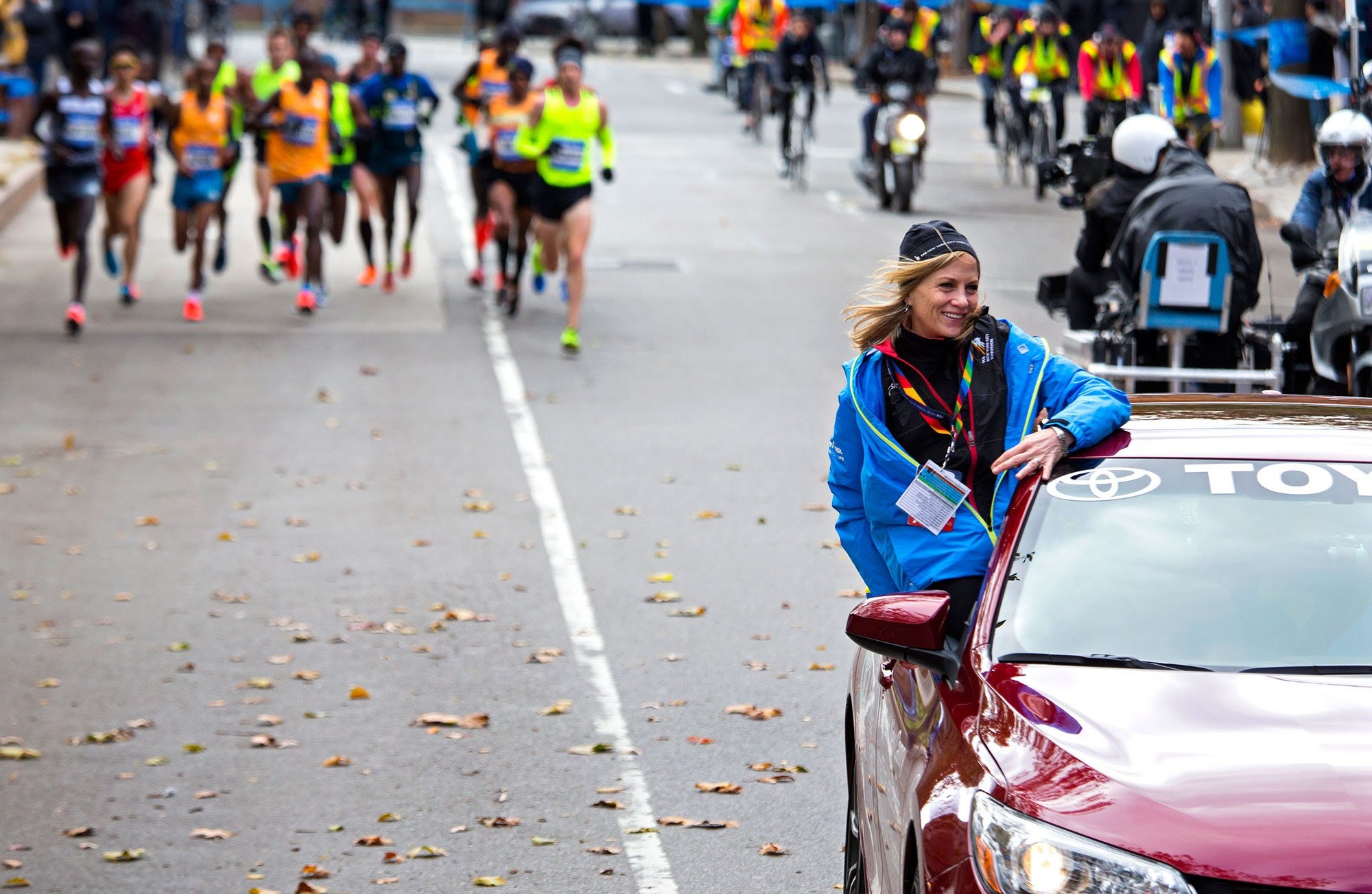
Mary Wittenberg
Mary Wittenberg's successes include being the first female CEO and president of a major sports organization, New York Road Runners; fighting for equal pay for professional female runners; being hand picked by Richard Branson to lead his Virgin Sports start-up; and, becoming a recognized and forceful leader of women’s agendas in the male-dominated world of track and field and road running. One of her most recognized legacies is turning the New York City Marathon into the largest one-day worldwide spectator sport worth millions of dollars in sponsorship money. Mary understands that sports gives women confidence. She has dedicated her life and career to making sure all women have access to that experience.
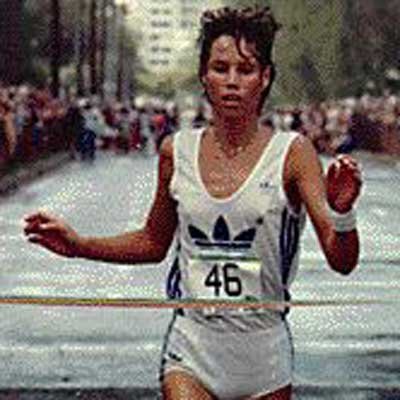
Eileen Claugus
Eileen Claugus grew up in the Sacramento, California area, where she remains somewhat of a local running celebrity to this day. Claugus remembers competing in her first race in a cross-country meet in 1967. She went on to set a national high school mile record of four minutes and 40 seconds, which stood for 10 years. She continued to compete, placing second at the World Cross Country Championships in 1971 and serving as an alternate to the U.S. Olympic team in the 1,500 meters in 1972, at age 16. Eventually, she moved up to the marathon, and claimed victory at the 26.2-mile distance in Honolulu, San Francisco, Mexico City, and the British Marathon in Manchester, England. She ran a personal-best 2:37 at the 1982 Chicago Marathon. Alongside and after her athletic career, she worked as a school counselor and had two sons; she's now retired and living in Telluride, Colorado, where she skiis, cycles, hikes, and works with adaptive athletes.
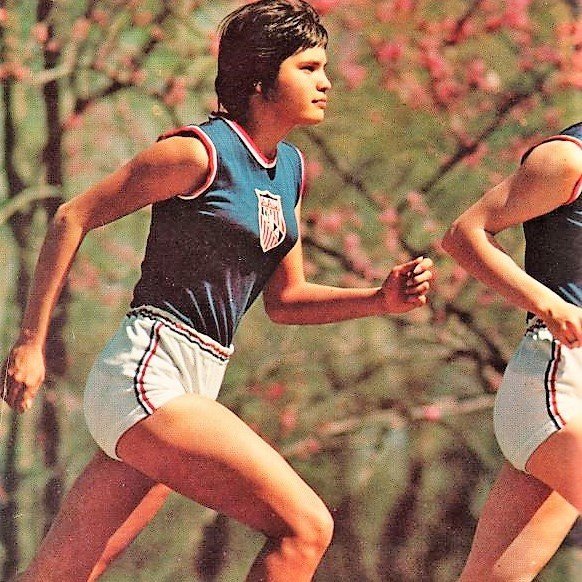
Marie Mulder
Marie Mulder’s running career was brief but triumphant—she started in the sport just before her 14th birthday, when a local coach recruited her. The next year, at the 1965 National AAU Track & Field Championships, she won both the 800 meters and the 1,500 meters—the first time women were allowed to compete there at a distance beyond the half-mile. That earned her a spot in the U.S.-Russia meet in Kiev later that year, where days after her 15th birthday, she ran 2:07.3 in the 800 meters to place second and break the American record by 1.5 seconds. She dreamed of competing in the 1,500 meters at the 1968 Olympic Games in Mexico City, but it wasn’t in the cards; that distance wasn’t added to the Games for women until 1972, and Marie’s running career came to a close not long after her family moved to Washington, DC, in 1965.
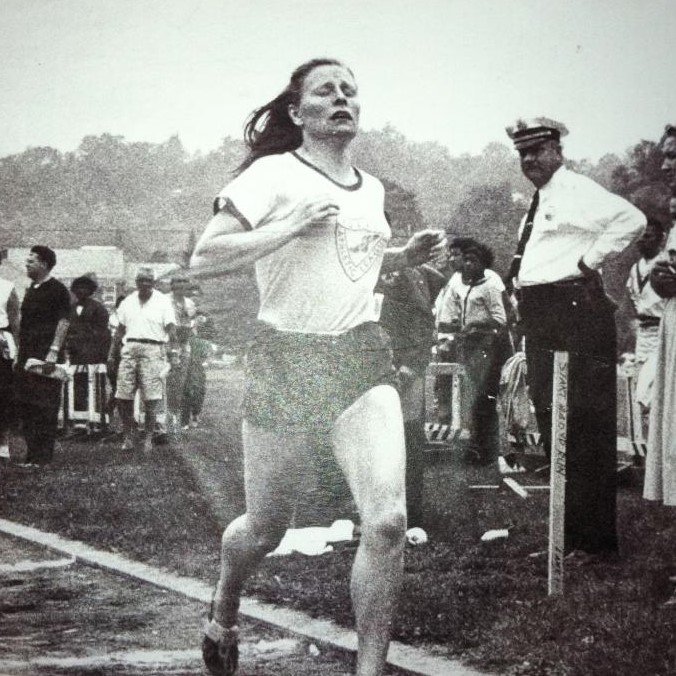
Chris McKenzie
Chris McKenzie was born in London in 1931, and was diagnosed at a young age with a serious bone infection that required her to wear a brace. While she was recovering, she had the good fortune to meet a famed runner named Anne Stone, who helped her recover, encouraged her to get into running and, eventually, became her coach. Her talent was quickly evident over a range of distances, including the 880 meters and longer cross country courses. In 1953, she met American Olympian Gordon Mckenzie, and eventually married him and moved to the United States—where, to her dismay, she found women were limited to running 200 yards. Not to be deterred, Chris ran men's races and evetually, staged a protest that was instrumental in the development of U.S. women’s track.
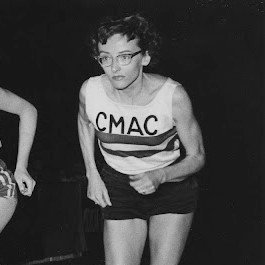
Grace Butcher
As a child in Chardon, Ohio, Grace Butcher realized she was fast at a young age. In ninth grade, she learned about track and field as a sport that was only available to men—and as a sophomore, she sought to change that, asking the school's track coach to start a girls' team. When he refused, her mother contacted Stella Walsh, the 1932 Olympic champion in the 100 meters and then-coach of the Polish Falcons, a boys and girls track club in Cleveland, Ohio. A couple of days each week, Butcher’s mother would make the 30-mile drive from Chardon, so her daughter could train with the team. Butcher would go on to win three national titles in her signature event, the 880 meters, as well as continuing to advocate for more opportunities for girls and women in distance running. She also pursued passions off the track, including a solo 2,500-mile motorcycle trip through New England; writing poetry and prose, as well as teaching English; and riding and training horses, which she continues to do to this day.

Randi Bromka Young
Randi Bromka Young can pinpoint the moment her running career started: She woke up one day when she was 31 and ran as far as she could from her house. She only traveled a mile that day, but from there, the transition to running ultramarathons was “rather quick,” in Young’s words. Her first race was the famed Boulder Bolder 10K and then some short summer races and a short triathlon. By 1987, she had run six marathons; in July of that year, Young ran her first ultramarathon, the Vail Valley 50 Mile; and then, she won the Leadville 100 in a time of 24:12. She'd return to that legendary course three more times, finishing the race in 1988, 1989, and 1990. She also represented the United States at the World 24 Hour Championships in 1990 and won the TAC 24-Hour Championship in 1992.
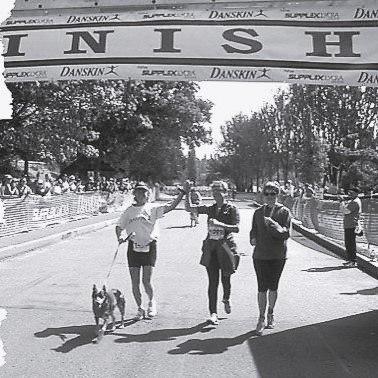
Sally “Sal” Edwards
For someone who wholeheartedly espouses the philosophy of leading from behind, Sally “Sal” Edwards is no stranger to being at the front of endurance races and the forefront of revolutions in running retail and exercise physiology. She didn’t pick up running until after college, but eventually became a Nike-sponsored runner and competed in a number of marathons, including the inaugural US Olympic Marathon Trials in 1984. Her marathons were interspersed with ultramarathons—In 1980 she won the Western States Endurance Run—both of which were ultimately supplanted by triathlons. She also founded two companies—Fleet Feet Sports and Heart Zones, of which she remains CEO—and has shared her expertise in training methods and exercise physiology across 24 books and over 500 articles.
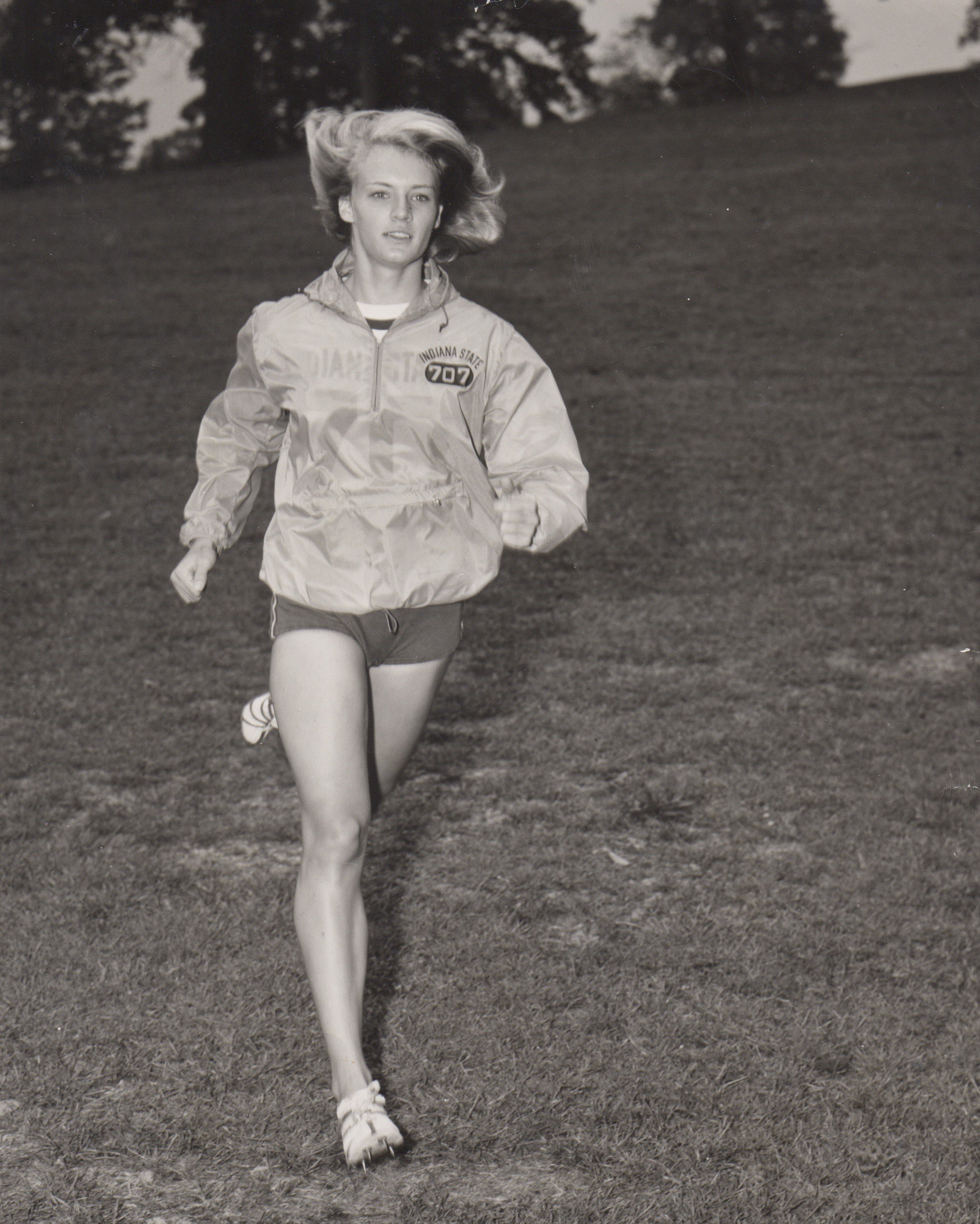
Cheryl Treworgy
In December 1971, Cheryl Bridges (now Cheryl Treworgy) became the first woman in the world to break 2:50 in the marathon. Treworgy decided to try running in 1964, when she was in high school; though she had no girls' teams to train with, she soon began competing and excelling. Eventually, she ran on five world cross-country teams and came in fourth at the 1969 international cross-country championships. A little more than three decades after Treworgy’s world-record marathon, one of her daughters, Shalane Flanagan, started winning championships, and she medaled at the 2008 Olympics. Once Treworgy retired from competitive running, she stayed close to the sport in other ways, including coaching, becoming a university’s assistant athletic director, and even training herself in photography, covering track and cross country meets as a professional photographer. Because of what she got out of running, Treworgy says she “became an advocate for any woman who really wanted to run or participate in a kind of athletic endeavor.”
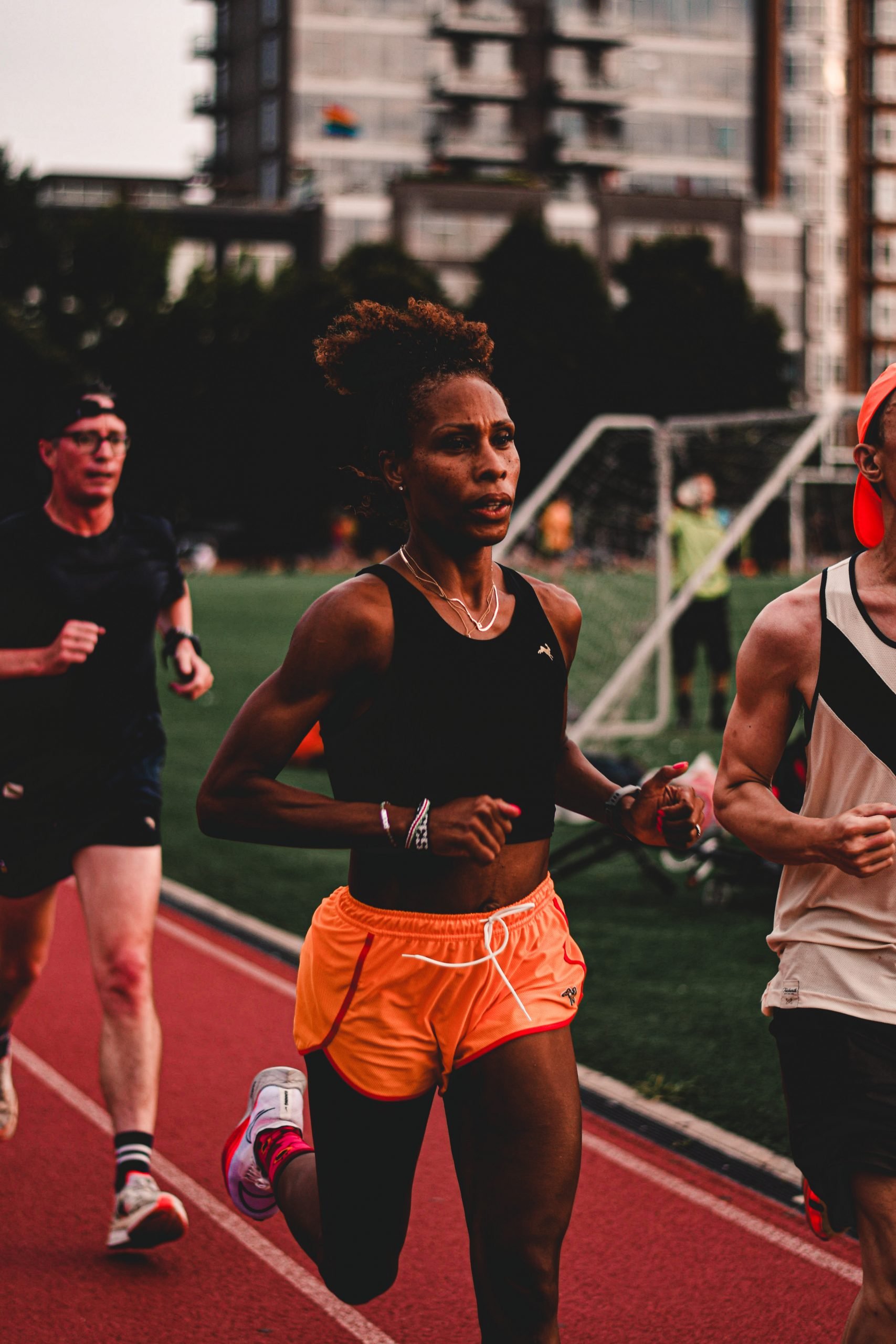
Erica Stanley-Dottin
To finish out the year, we’re bringing you something a little bit different in this feed: an episode of Women’s Running Stories, a podcast hosted by Cherie Louise Turner that features documentary-style stories about women’s running journeys. If you’ve been listening to our oral histories of women’s running pioneers, you’re going to love the way Cherie masterfully conducts and compiles these interviews, and we’d encourage you to subscribe to her podcast too, if you don’t already. This episode features Erica Stanley-Dottin, a runner with Black Roses NYC who also happens to work as the Tracksmith New York City Community Manager. Most recently, she added her name to the list of American-born Black female runners who have run a marathon in under three hours by finishing the 2022 Berlin Marathon in 2:52.05.
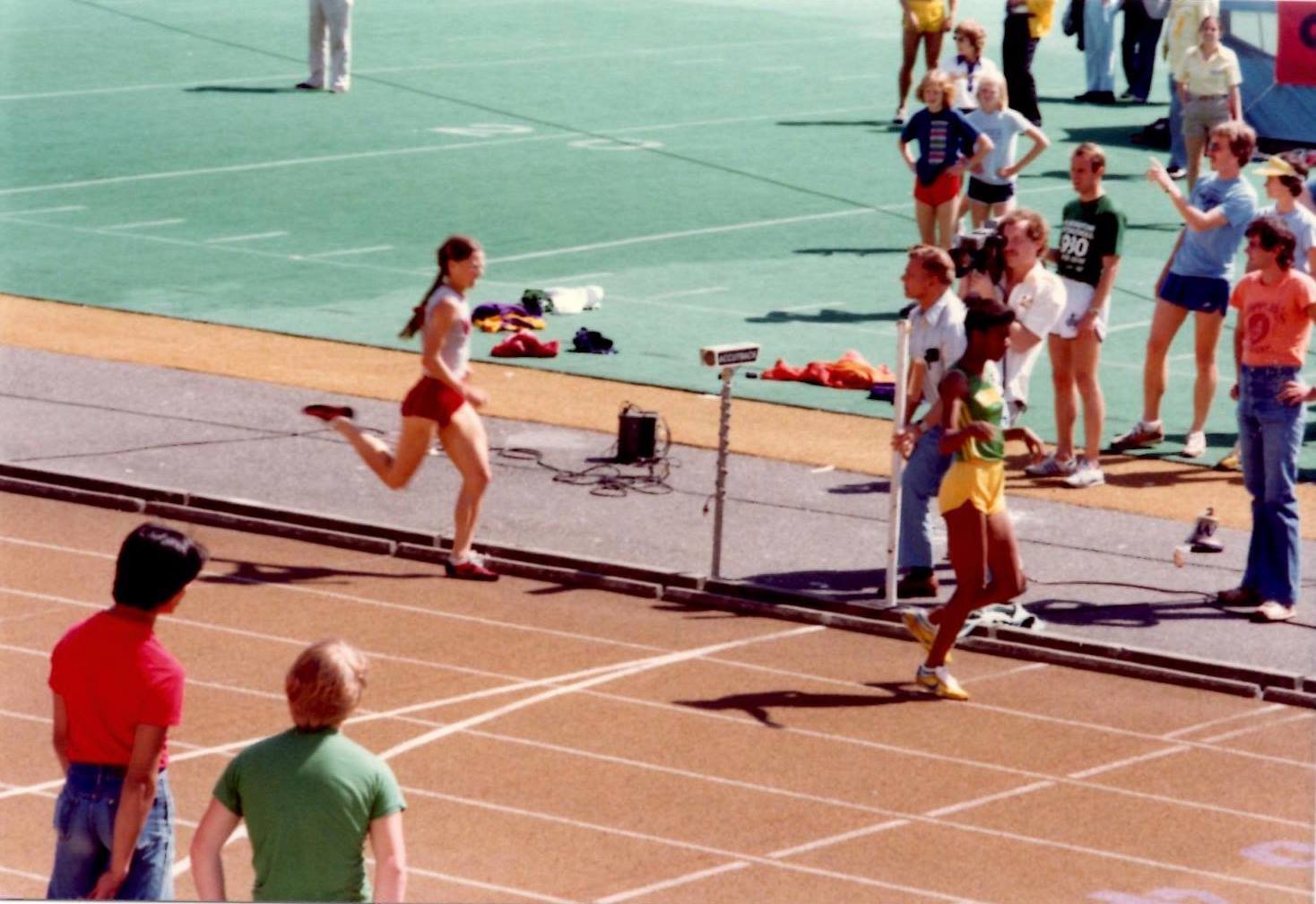
Karen (Blair) Troianello
In 1979, standout 800-meter runner Karen (Blair) Troianello joined a group of women student-athletes and coaches in a lawsuit against Washington State University (WSU), suing over inadequate funding and support for women’s athletics under Washington’s Equal Rights Amendment. By the luck of the alphabet, she ended up being named the plaintiff. Blair vs. Washington State University went to the state Supreme Court, which—in 1987—ruled in favor of Blair, changing college athletics in the state of Washington and nationally.
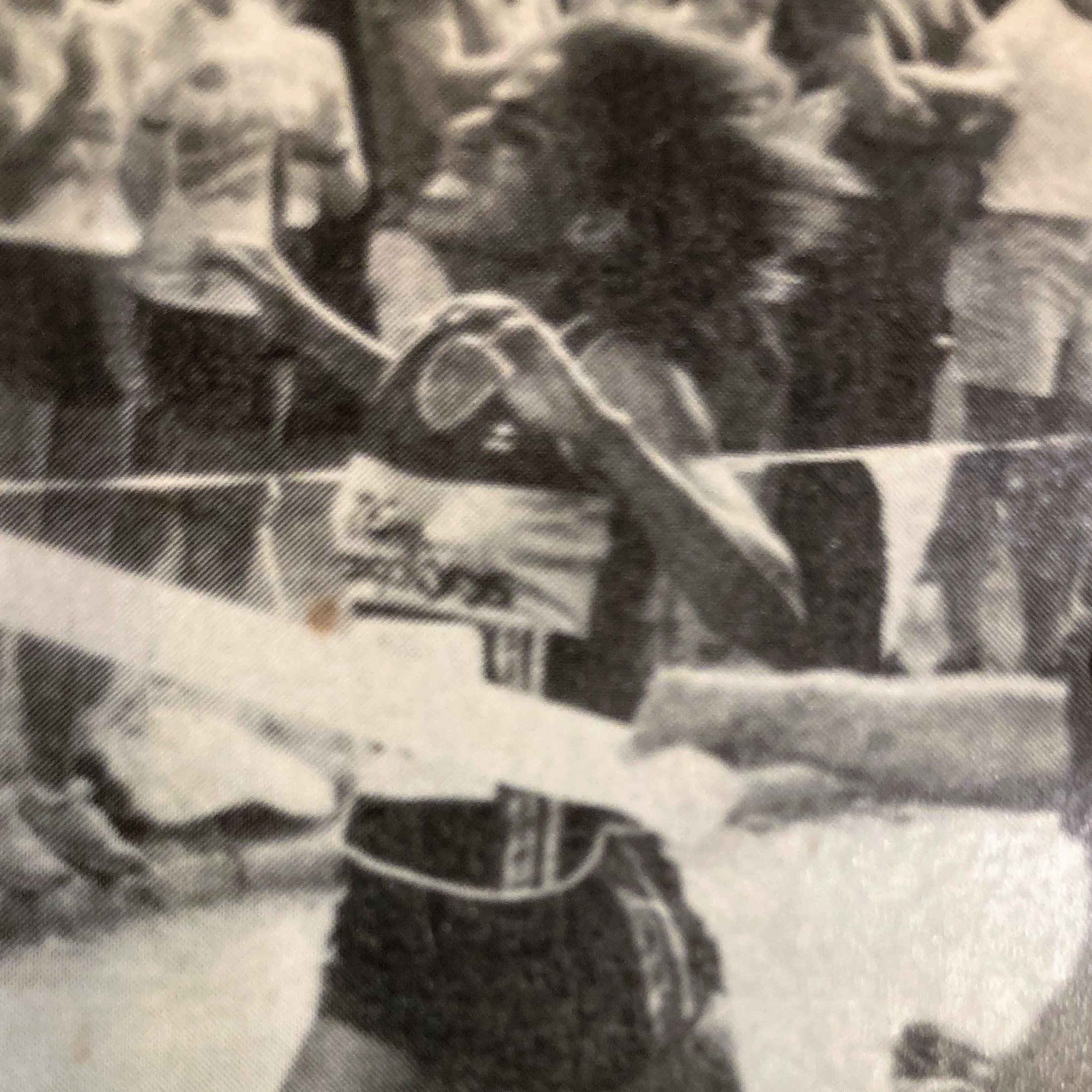
Michele Cuke
Michele Cuke's first racing success came at age ten when she won a 600-meter race sponsored by her church. She went on to become one of California’s top high school 800-meter and cross-country runners, then competed collegiately at UCLA. She ran all four years, culminating in setting the 10,000-meter school record and becoming the 1983 NCAA 1500-meter champion. Ultimately, Cuke completed eleven marathons in less than three hours, including eight in less than 2 hours and 45 minutes. To this day, she remains second-fastest on the growing list of American-born Black female runners who have eclipsed three hours in the marathon, thanks to the 2:37:41 she ran at the 1991 California International Marathon.
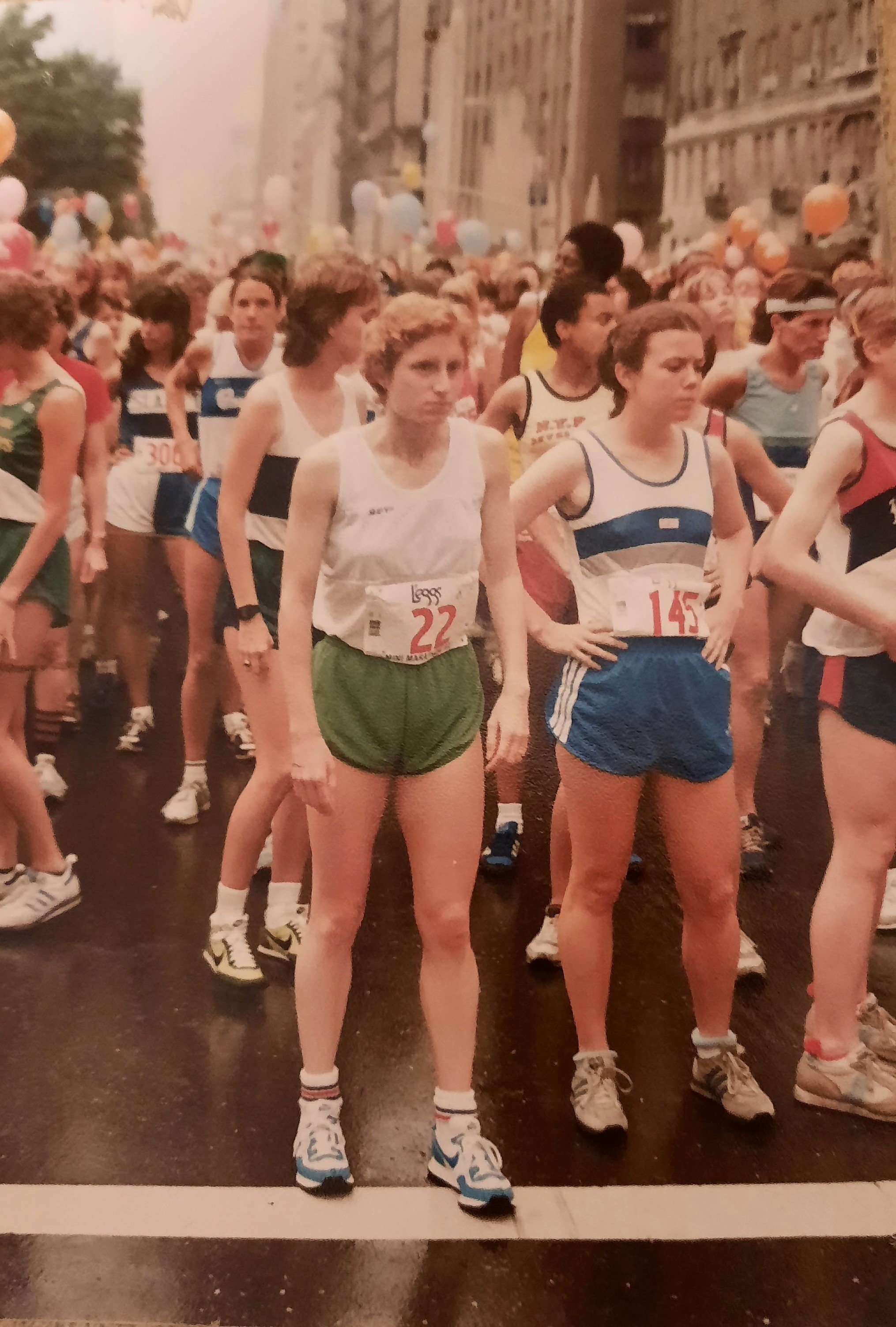
Patricia Barrett
1972 was a banner year for American women in athletics, and Patricia Barrett, a high schooler from New Jersey, was at the center of many of the milestones. In January that year, she won her first marathon, the inaugural Jersey Shore Marathon. Then, she was one of the eight women who ran the Boston Marathon that year, the first year female runners could officially enter and receive numbers. That fall, she returned to Central Park for the New York City Marathon, joining Kuscsik and five other women in a 10-minute protest at the start of the race. “I guess I was an activist in a way,” she says. “But I just just loved to [run].”
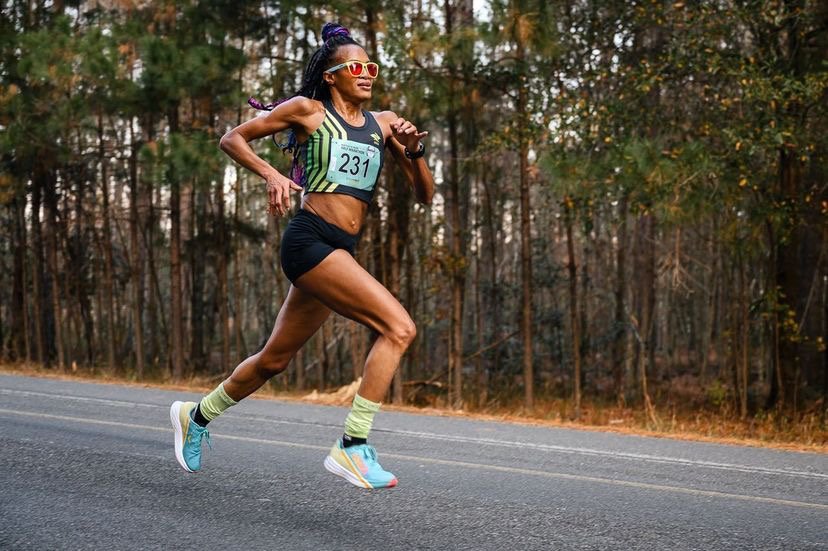
Shawanna White
Shawanna White is a semi-professional runner and physical-education teacher in Columbia, South Carolina. Nearly every weekend, you can find her on the starting line, racing distances from the mile to the marathon. She’s run more marathons under three hours than any other American-born Black female runner—her current total is 16—and her personal best of 2:45:19 places her eighth on the list of fastest African American marathoners, a list she was instrumental in creating. In 2022, she was inducted into the National Black Distance Running Hall of Fame and featured in the documentary Breaking Three Hours
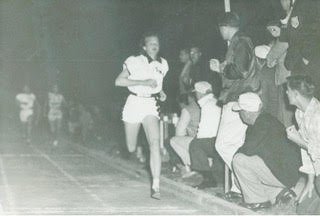
Billee Pat Connolly
When 16-year-old Billee Pat Connolly stepped up to the start line of the 800-meter race at the 1960 U.S. women’s Olympic Track and Field Trials, she had no idea she would become a part of history in what has now become known as "The Abilene 800," the event that opened the door for women to run longer distances. Connolly went on to become a three-time Olympian, a renowned track and field coach, who coached Evelyn Ashford and Allyson Felix to their own Olympic berths.
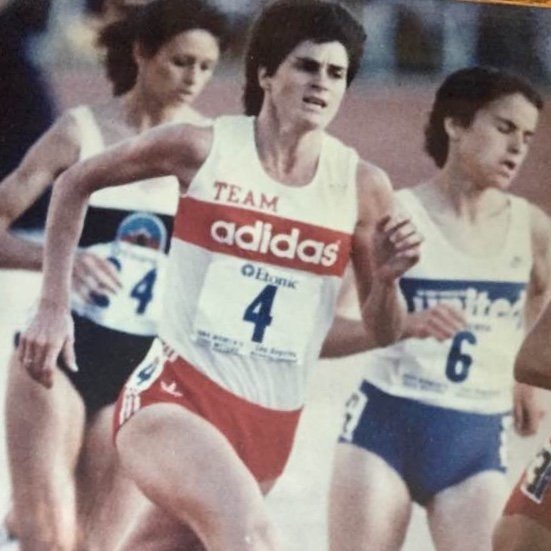
Julie A. Brown
Julie A. Brown grew up in Billings, Montana, as one of five, and began her running career when she followed in her sister’s footsteps and joined the high school cross-country team. Before long, she was paving her own path. Eventually, she made many US national teams during and after college. She excelled in an impressive range of events—from the 4x400 to the marathon to cross country. Notably, she was the first U.S. woman to win the IAAF Cross Country championships in 1975, ran a 2:26:26 marathon, and qualified for the first-ever women's Olympic Marathon.
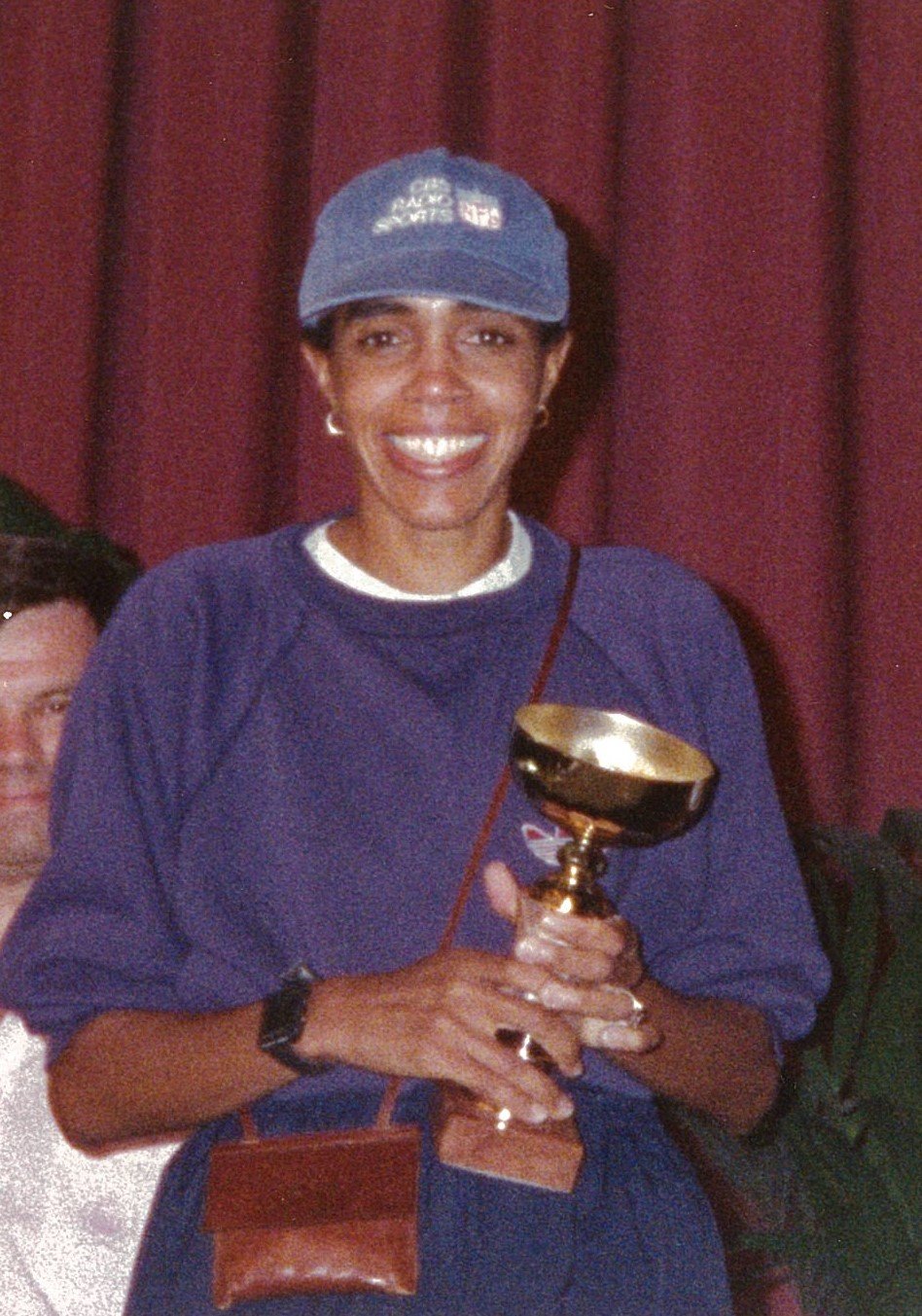
Michele Tiff-Hill
Michele Tiff-Hill grew up in Cleveland, into a very athletic family, but didn’t get into running herself until her late 20s. Instead, she focused on her music career in high school, college, and beyond. She took up running in an effort to simply be more active with all the hours she spent sitting at the piano bench every day. Though she initially did her running in secret, she quickly grew more motivated to improve her race times. She ran her first race, a 10K, in about 52 minutes; eventually, she'd become the first Black woman to qualify for the Olympic Trials in the marathon in 1984, qualifying in a time of 2:50:19 at the 1983 Sri Chinmoy Marathon. Tiff-Hill was recently inducted into the National Black Distance Running Hall of Fame and featured in a documentary about Black women who have broken three hours in the marathon.
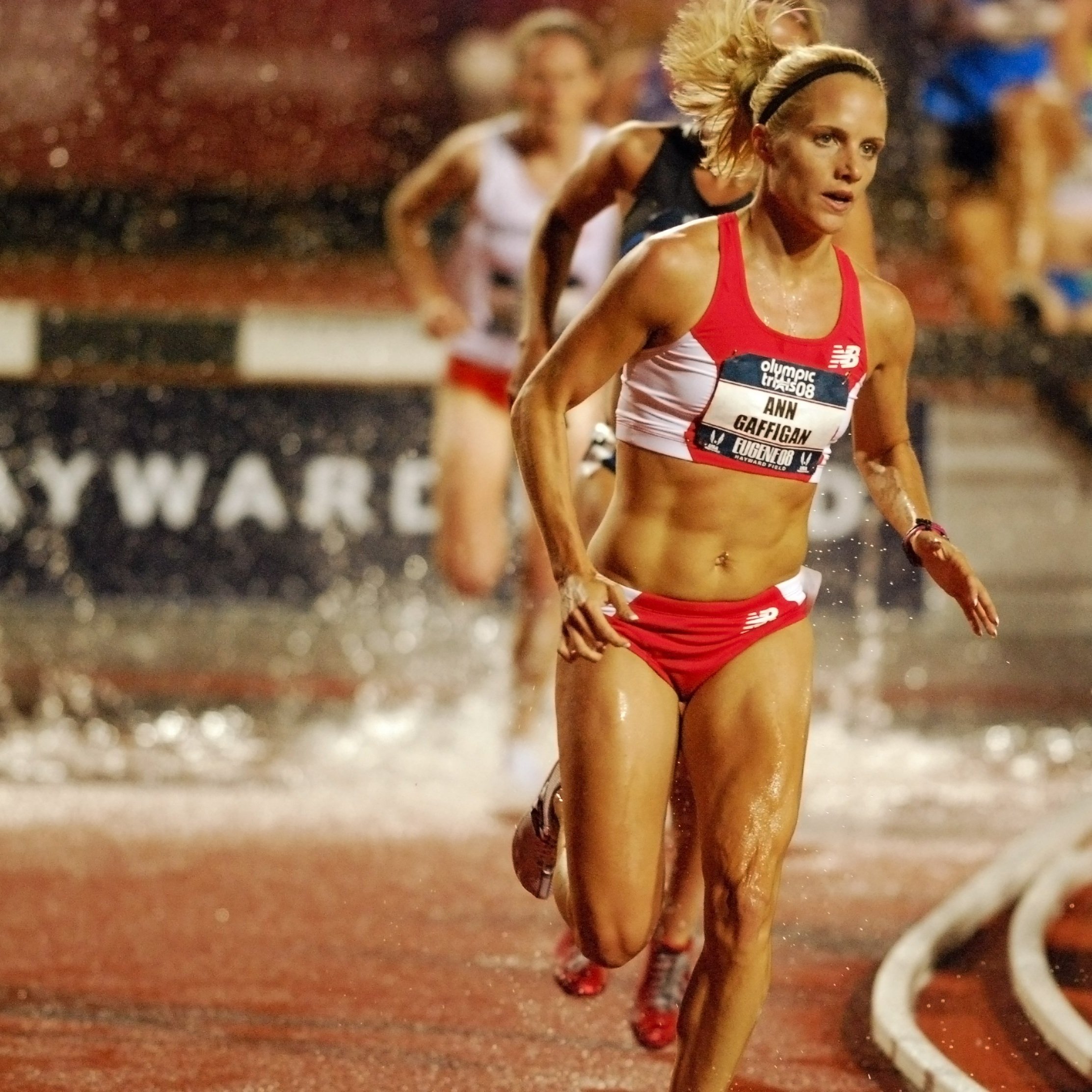
Ann Gaffigan
At the 2004 Olympic Trials, Ann Gaffigan won the 3,000-meter steeplechase and set an American record. But the women’s steeplechase wasn’t yet an Olympic event, so it was only an exhibition event at the trials, and Gaffigan’s win didn’t earn her a ticket to the Olympics. It was the best day of her life, Gaffigan says, and she was proud of what she’d accomplished—but competing at the Olympics had been her childhood dream, and she didn’t get to go, despite the fact that men had been competing in the steeplechase at the Olympics for more than a century. She channeled her drive to support women and girls in sports into a website called WomenTalkSports and other avenues, including serving on the USATF Athletes Advisory Committee from 2006 to 2019.
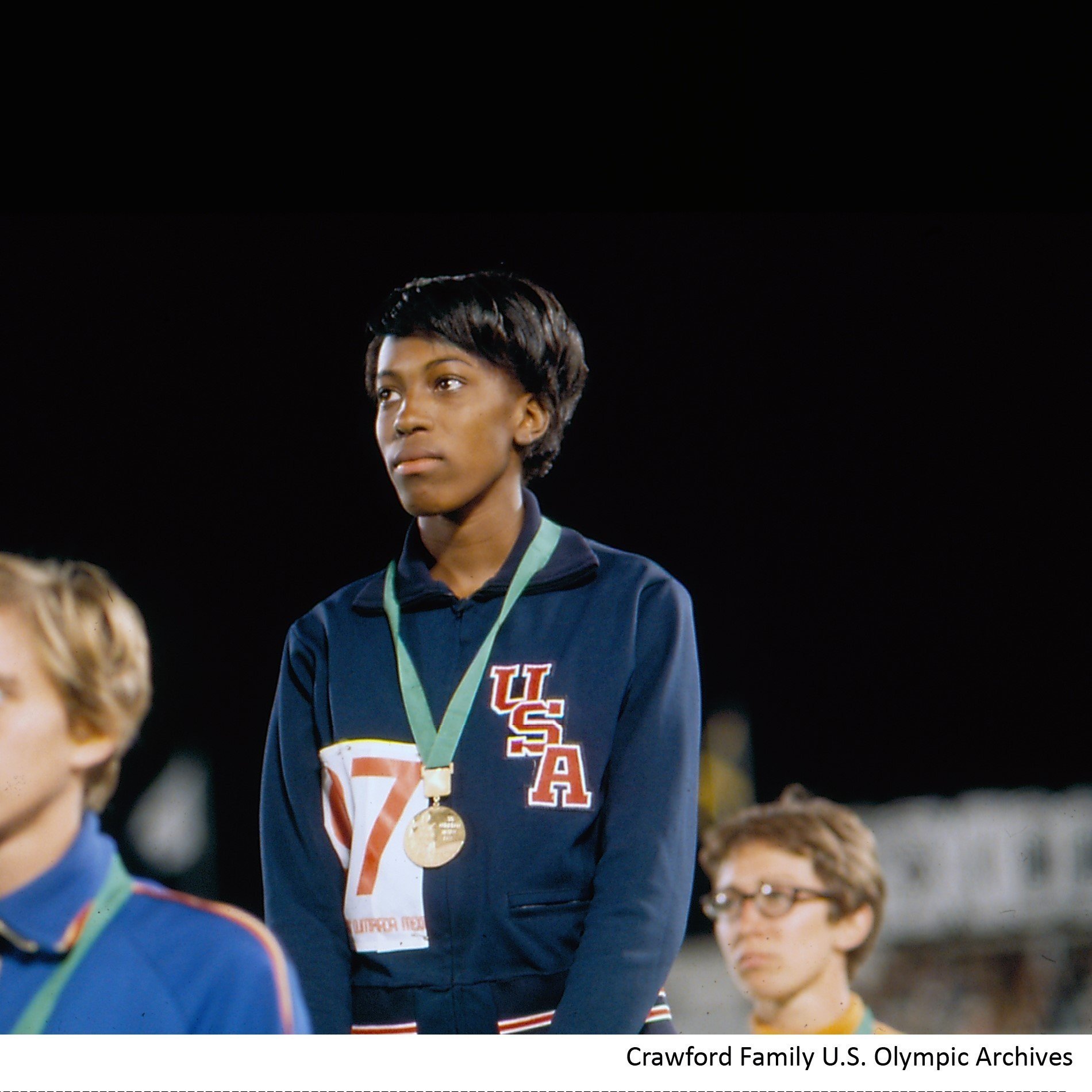
Madeline Manning Mims
While attending Tennessee State University, Mims became the first African-American woman to compete in the 800 meters and the first American to win Olympic gold at the 1968 Games in Mexico City. From 1967 to 1980, she won 10 national indoor and outdoor titles and set several American records. Her fastest 800-meter time, 1:57.9 in 1976, was a long-standing American record in the event. Today, being an “overcomer” informs Mims's work as a motivational speaker and chaplain for the U.S. Olympic team. She is also the founder and president of the United States Council for Sports Chaplaincy.
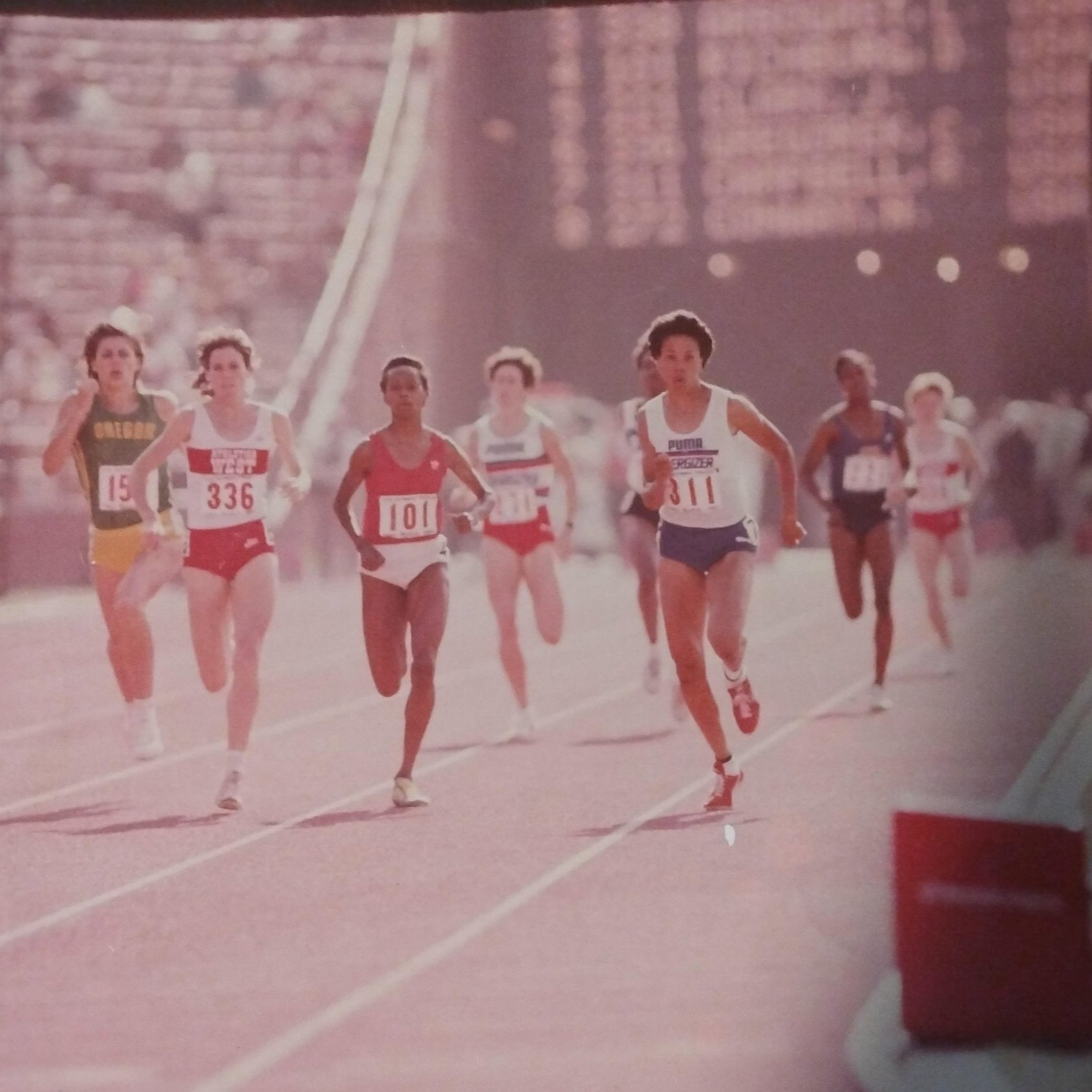
Robin Campbell Bennett
Between 1972 and 1976, Robin Campbell Bennett competed in events across the United States, winning and medaling at many of them. In 1974, she set the American Record in both the 600 meter and 1000 meter events. She also competed at the USA vs China Friendship Competition in Shanghai, China in 1975. Then, in 1976 Robin participated as an Olympic Trials Qualifier in the 400-, 800-, and 1500-meter events in Eugene, Oregon. She was a sponsored athlete of the Puma Track Club, perhaps paving the way for female athletes of today to garner such paid sponsorships.

